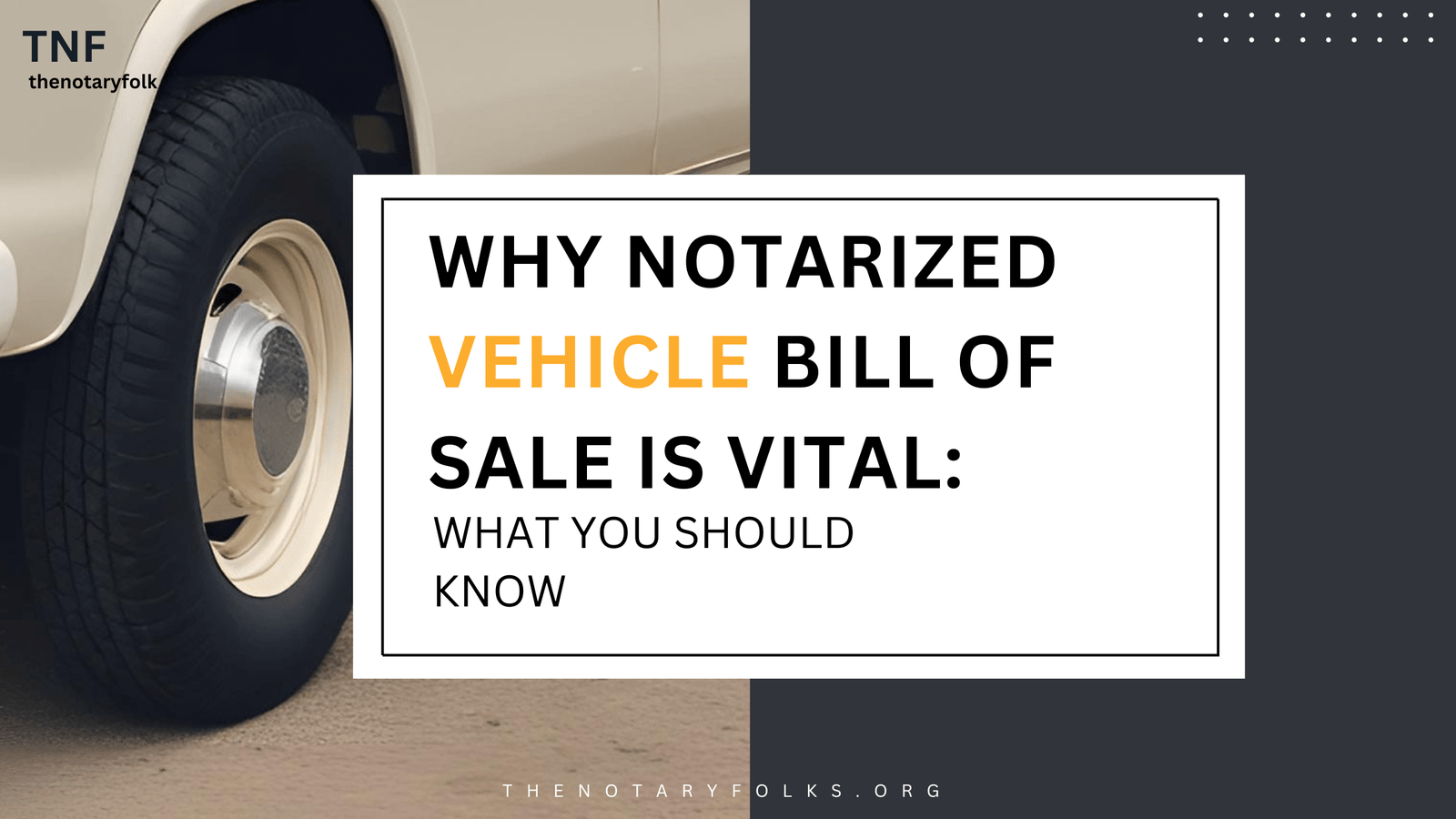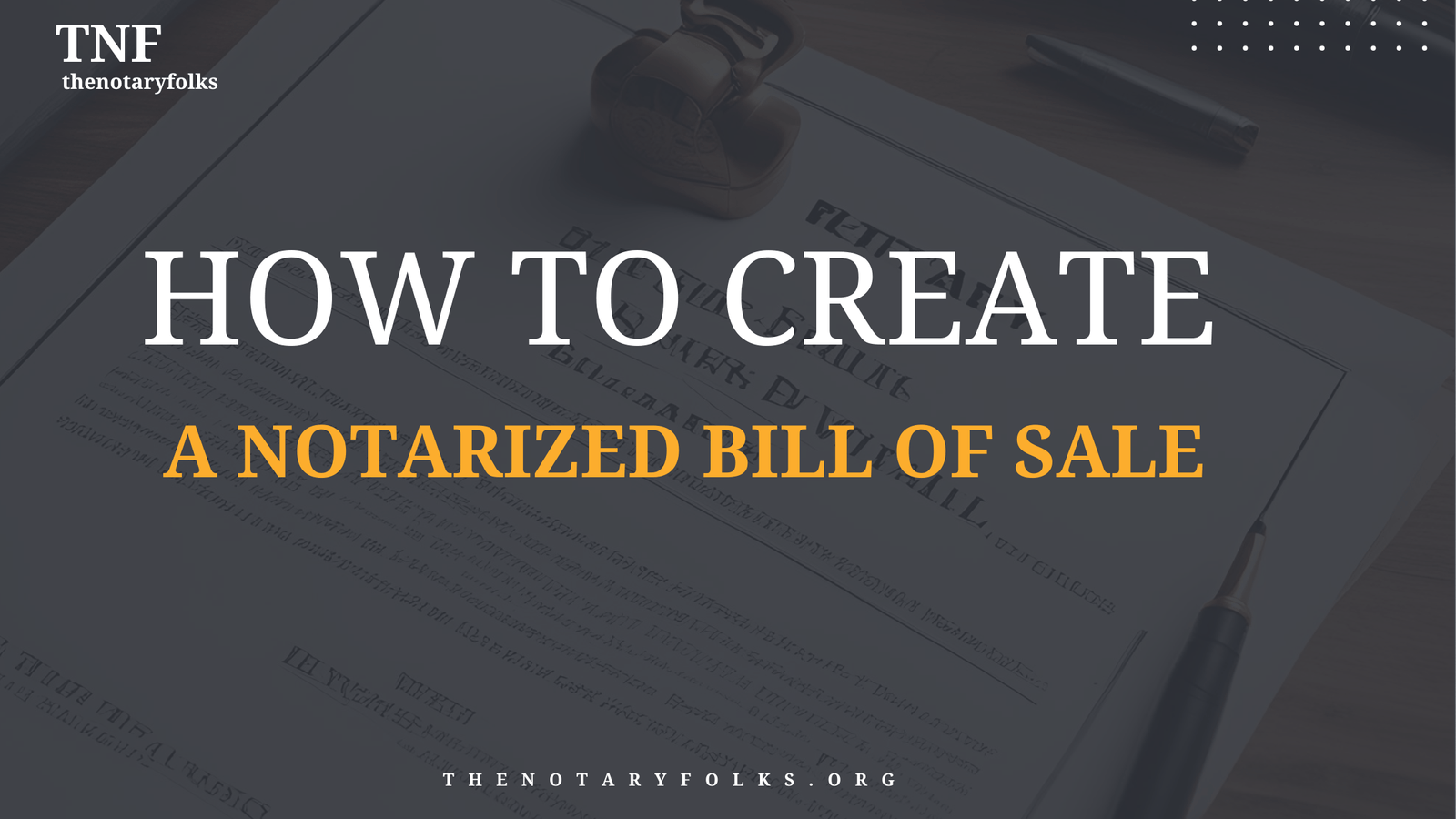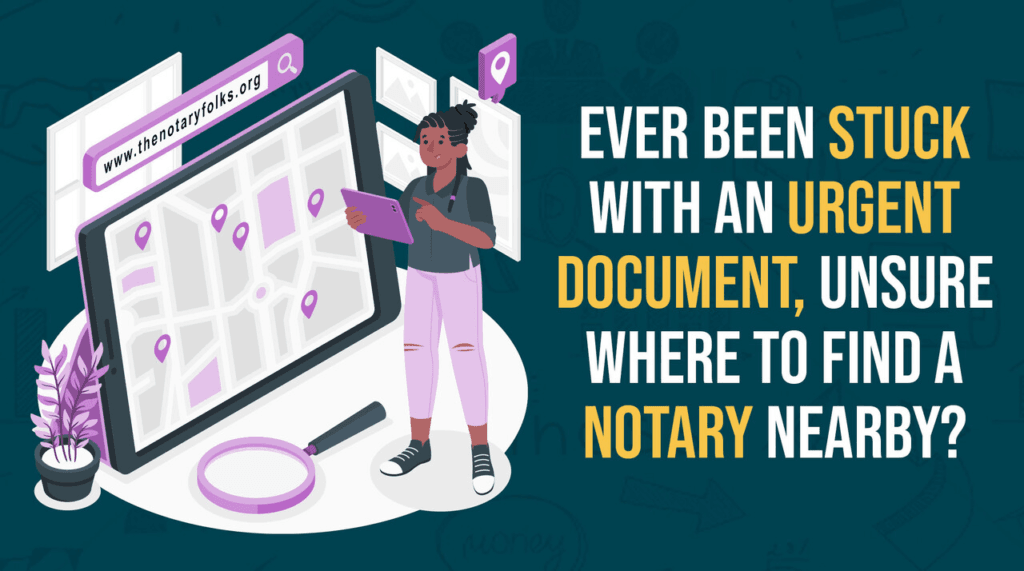
Imagine you’ve found the perfect car, and you’re excited to buy it. But before you hand over your money, there’s one very important paper you need: a notarized bill of sale for car. This simple document can protect you from problems that might pop up later, like arguments over who owns the car.
When buying or selling a car, it’s easy to rush through the deal and forget about the paperwork. However, without the right documents, you could run into legal trouble. A notarized bill of sale for car not only helps both buyers and sellers but also makes sure the transfer of ownership is safe and official.
In this guide, you will learn everything you need to know about the notarized bill of sale, why it’s important, how to make one, and some important question such as ” Does a bill of sale need to be notarized?”. Let’s get started on making your car buying or selling experience smooth and worry-free!
Table of Contents
- What is a Notarized Bill of Sale?
- Does a bill of sale need to be notarized?
- How do I get a bill of sale notarized?
- Who can notarized a bill of sale form?
- How to Create a Notarized Bill of Sale for Vehicle Transactions
- Overview of Vehicle Transactions and Types
- Common Problems to Avoid in Vehicle Sales
- Frequently Asked Questions (FAQs)
- Conclusion: Safeguarding Your Vehicle Transaction
- Glossary of Terms Related to Vehicle Sales
What is a Notarized Bill of Sale?
A notarized bill of sale is a legal document used to transfer ownership of a valuable item, such as a vehicle, boat, jewelry, or real estate. A notary public makes it official. They check IDs and make sure everyone signs willingly. Then they put their stamp on it. This makes the sale legal and secure, and it can help prevent problems later.
Does a bill of sale need to be notarized?
Sure! it’s a good idea to get it notarized, especially for expensive things. Why? Because a notary makes sure everyone is who they say they are. They also check that the paperwork is filled out correctly. This protects both the buyer and the seller. It keeps things legal and prevents problems later on.
Does a bill of sale have to be notarized by both parties?
Usually, no. Only the seller needs to get their signature notarized. But, it’s a good idea for both the buyer and seller to keep a copy of the notarized bill of sale for their records. Laws about this can be different depending on where you live, so it’s always best to check.
How do I get a bill of sale notarized?
Getting a bill of sale notarized is a straightforward process, and you have two primary options:
1. In-Person Notarization:
- Find a Notary Public: Notaries can be found at various locations, including:
- Banks and credit unions
- Law offices
- Shipping stores (e.g., UPS, FedEx)
- Courthouses and government offices
- Mobile notary services (they come to you!)
- Bring Your Documents: Make sure you have the completed bill of sale and valid identification (e.g., driver’s license, passport).
- Meet with the Notary: The notary will witness the signing, verify your identity, and affix their seal and signature to the document.
2. Online Notarization:
- Choose a Provider: Several reputable online notary services allow you to get your bill of sale notarized remotely.
- Upload Your Document: You’ll typically upload a digital copy of your bill of sale.
- Verify Your Identity: Online notaries use secure methods to verify your identity, such as video conferencing and knowledge-based authentication.
- E-Signature: You’ll electronically sign the document in the presence of the online notary.
- Receive Your Notarized Copy: The online notary will affix their digital seal and signature, and you’ll receive a notarized copy of your bill of sale electronically.
Benefits of Online Notarization:
- Convenience: Get your documents notarized from anywhere with an internet connection.
- Efficiency: Skip the travel time and hassle of in-person appointments.
- Speed: Often faster than traditional notarization.
- Security: Reputable online notaries use advanced security measures to protect your information.
Whether you choose in-person or online notarization, ensure the notary is commissioned in your state, as requirements can vary.
Why a Notarized Bill of Sale for Car is Necessary
Legal Protection in Vehicle Transactions
If you want to protect yourself when buying or selling a car? Get a notarized bill of sale. This document proves the sale happened. It also protects both the buyer and the seller. If there are any problems later, the bill of sale can help. For example, imagine the car breaks down right after you buy it. The bill of sale can help you prove what the seller said about the car’s condition.
Proof of Ownership Transfer
A bill of sale proves you sold something. Get it notarized! This makes it official. A notary will check IDs and signatures. This protects you and the buyer. It proves who owns the item. This is really important for valuable things like cars. It helps prevent problems later.
Compliance with State Laws
Car laws are different in every state. Many states require a notarized bill of sale to sell a car legally. If you don’t follow the rules, you could get in trouble. Check your state’s rules to be safe.
Legal Implications of Notarization
Avoiding notarizing your bill of sale may seem like a shortcut, but it can lead to serious legal consequences over time. This critical document not only ensures the legitimacy of the sale but also protects both parties against potential claims or disputes.
Serious Legal Repercussions
Skipping notarization can cause big problems. A notarized bill of sale has important details about the sale. It proves who owns the item now. Without it, you could have trouble proving the item is yours.
Who can notarize a bill of sale form?
A notary public can help you with this! Notaries are officially appointed by the government. They check the IDs of everyone signing and make sure the document is real. This helps prevent fraud and makes your bill of sale more trustworthy.
You can usually find a notary at a bank or law office. However, many notaries can also meet you anywhere you like. Just remember to check that they are authorized in your area.
Where to find a notary:
Notaries are readily accessible in various locations, such as:
- Banks and credit unions: Many offer notary services to their customers, often for free or a small fee.
- Law offices: Most attorneys have a notary public on staff.
- Shipping stores: Places like UPS stores usually offer notary services.
- Courthouses and government offices: Local government offices often have notaries available.
- Mobile notary services: For added convenience, you can hire a mobile notary to come to your location.
Important note: Notary laws and regulations can vary by state, so it’s crucial to choose a notary public who is commissioned in your area.
Why notarization matters:
Having your bill of sale notarized adds a significant layer of credibility. It confirms the identities of the parties involved, ensures the document meets all legal requirements, and can help prevent fraud. This is especially important for high-value transactions.
How to Create a Notarized Bill of Sale for Car
Creating a notarized bill of sale for car might seem daunting, but it can be straightforward if you follow the steps below:

Required Tools:
Things Needed?
How to Create a Notarized Bill of Sale for Car







Overview of Vehicle Transactions and Types
A notarized bill of sale for car is applicable in various transactions, including:
- Private Sales: Direct sales between individuals.
- Dealership Purchases: Transactions through authorized car dealerships.
- Gifting: Vehicle transfers between family members or friends.
Other Legal Requirements for Vehicle Transactions
In addition to the notarized bill of sale, other legal aspects must be addressed, such as:
- Updating Vehicle Registration: Ensuring the vehicle is registered under the new owner’s name.
- Changing Insurance Details: Updating insurance policies to reflect the change in ownership.
Common Problems to Avoid in Vehicle Sales
Mismatched Information
Mismatched details can lead to confusion or delays. Ensure that all information on the notarized bill of sale for car matches the information on the vehicle title and any related documents. Discrepancies can spell trouble for the transaction.
Not Notarizing
Failing to notarize the bill of sale can complicate matters, especially in states where notarization is required. This simple step provides essential legal protection that can’t be overlooked.
Missing Information
Omitting critical details like the odometer reading can invalidate the bill of sale. It’s important to include all necessary information to ensure the document is complete and legally sound.
Frequently Asked Questions (FAQs)
Not all states require a notarized bill of sale, but it's essential to check the specific regulations in your state to avoid any issues.
Yes, you can create a bill of sale without a notary, but notarization is often recommended as it provides additional legal protection.
It's crucial to keep a copy of the notarized bill of sale. If lost, you may need to follow specific steps to replace it or prove ownership.
If either party is hesitant to notarize, it may indicate potential issues. It's advisable to reconsider the transaction or seek legal advice in such situations.
Conclusion: Safeguarding Your Vehicle Transaction
Buying or selling a car? A notarized bill of sale for car is important. It protects both the buyer and seller. It makes the sale official and legal.
This document helps ensure a smooth process. It also prevents problems later. Want to learn more? Book an appointment below with our notary expert today!
Follow these steps for a smooth and legal vehicle transaction! Drive away confidently with complete peace of mind. Still have questions or need expert help? check out our notarized bill of sale service page for seamless process.🙂! Happy buying and selling!
Glossary of Terms Related to Vehicle Sales
- Bill of Sale: A legal document that records the sale of a vehicle.
- Notarization: The official fraud-deterrent process that verifies the authenticity of a signature.
- Vehicle Identification Number (VIN): A unique code used to identify individual motor vehicles.


